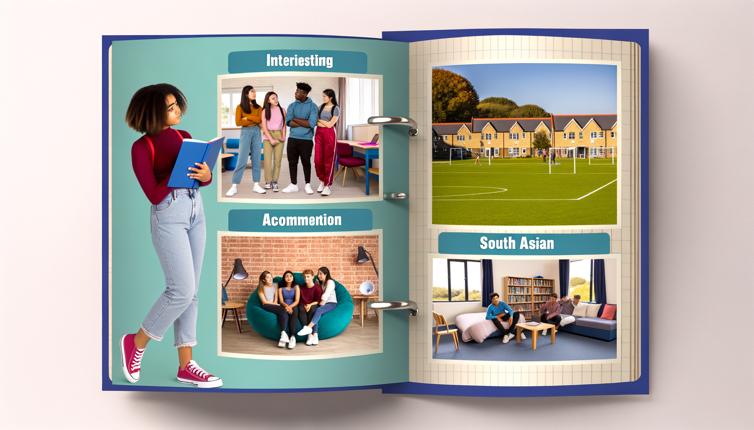1. Academic Programs
Consider the academic programs offered by the college. Do they align with your interests and career goals? Research the reputation and accreditation of the programs to ensure they meet industry standards.,Look into the faculty and staff qualifications. Are they experts in their fields? A strong faculty can greatly enhance your learning experience.,Consider the resources available to support academic success. Look for libraries, research facilities, and tutoring services.,Evaluate the class sizes and student-to-faculty ratio. Smaller class sizes often provide more personalized attention.
2. Location
Consider the location of the college. Do you prefer a rural, suburban, or urban setting? Think about the climate, culture, and recreational opportunities in the area.,If you want to pursue internships or job opportunities in a specific industry, consider colleges located in areas with a strong presence in that field.,Think about how far you are willing to travel from home. Consider the cost and convenience of transportation options.,Do you prefer a college close to home or are you open to studying in a different state or even country?
3. Campus Facilities
Visit the campus or take a virtual tour to assess the facilities. Look for well-maintained buildings, modern classrooms, and state-of-the-art technology.,Consider the availability and quality of housing options. Look into dormitories, apartments, or off-campus housing.,Evaluate the campus amenities such as dining halls, student centers, gyms, and recreational facilities.,Check if the college has the necessary resources to support your extracurricular interests, such as sports teams, clubs, or music programs.
4. Financial Considerations
Evaluate the cost of tuition, fees, and other expenses. Consider your financial situation and whether scholarships, grants, or financial aid are available.,Research the employment rates and average salaries of graduates. A college with a strong track record of post-graduation success may be worth the investment.,Consider the cost of living in the area. Are housing, transportation, and other necessities affordable?,Think about the potential return on investment. Will the education and opportunities at this college lead to a successful career?
5. Campus Culture
Consider the campus culture and social environment. Research the diversity, student organizations, and events offered by the college.,Think about the size of the student body. Do you prefer a smaller community or a larger, more diverse population?,Research the college's values and mission. Look for colleges that align with your personal values and interests.,Consider the level of academic rigor and competitiveness. Do you thrive in a challenging environment?
6. Support Services
Consider the support services available to students. Look for resources such as counseling centers, health services, and career counseling.,Research the availability of academic support, such as tutoring, study groups, and writing centers.,Evaluate the accessibility of faculty and staff. Are they available to provide guidance and mentorship?,Consider the college's commitment to student success. Look for programs and initiatives aimed at supporting student growth and development.
7. Alumni Network
Research the college's alumni network. Look for successful graduates in your field of interest.,Consider the opportunities for networking and mentorship. A strong alumni network can provide valuable connections and career opportunities.,Look into alumni events and programs. Does the college provide ways for alumni to stay connected and engaged?,Consider the reputation and influence of the college's alumni network. Will it open doors for you in your desired career?
8. Campus Safety
Evaluate the safety measures on campus. Look for emergency response systems, security personnel, and well-lit pathways.,Research the crime rates in the surrounding area. Is the campus located in a safe neighborhood?,Consider the college's policies and initiatives aimed at promoting a safe and inclusive campus environment.,Look into the college's efforts to prevent and address issues such as sexual assault and harassment.
9. Internship and Job Placement
Consider the college's reputation and track record in helping students secure internships and job opportunities.,Research the career services offered by the college. Look for resources such as resume assistance, interview preparation, and job fairs.,Evaluate the partnerships and connections that the college has with employers in your field of interest.,Look into the alumni network and see if graduates have been successful in obtaining internships and jobs.
10. Personal Fit
Ultimately, consider your personal fit with the college. Trust your instincts and choose a college where you feel comfortable and supported.,Think about the size, atmosphere, and overall vibe of the campus. Can you envision yourself living and studying there?,Consider the opportunities for personal and academic growth. Will this college challenge and inspire you?,Reflect on your values, interests, and long-term goals. Choose a college that aligns with your vision for the future.
Conclusion
Choosing the right college is a complex decision that requires careful consideration. By evaluating factors such as academic programs, location, campus facilities, financial considerations, campus culture, support services, alumni network, campus safety, internship and job placement opportunities, and personal fit, you can make an informed choice that sets you up for success. Remember to visit campuses, research thoroughly, and trust your instincts. Best of luck in your college search!









